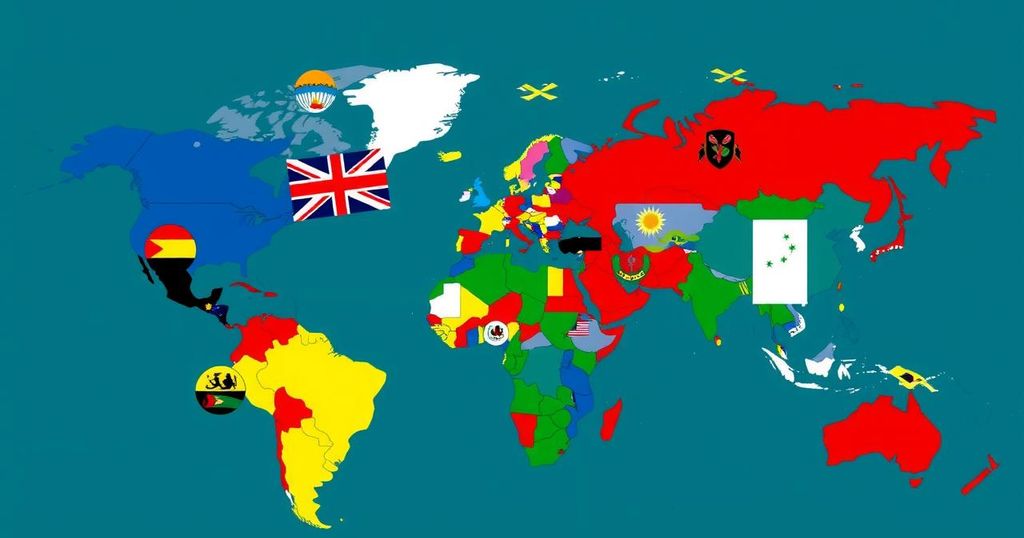Leaders from the Commonwealth nations gathered in Samoa to discuss vital issues such as climate change and reparations for the transatlantic slave trade, amidst warnings about the impact of rising sea levels on island nations. While the UK government remains reluctant to directly address reparations, dialogue on the subject is being encouraged, highlighting the importance of historical accountability amidst ongoing socio-economic disparities.
The leaders of the Commonwealth nations convened in Samoa for a summit where crucial discussions revolved around climate change and reparations for the transatlantic slave trade. The event commenced with a welcome banquet attended by representatives from 56 nations, including King Charles of Britain. Notably, over half of the Commonwealth’s members are small island states, many of which are particularly vulnerable to the effects of rising sea levels due to climate change. United Nations Secretary-General Antonio Guterres has highlighted that ocean temperatures around the Pacific Islands are increasing at an alarming rate, three times faster than the global average, thereby jeopardizing local communities. Australian Foreign Minister Penny Wong emphasized the existential threat posed by climate change, calling it the foremost national and economic security challenge for Pacific nations and other Commonwealth members. Meanwhile, leaders from African countries cautioned about climate change’s escalating impact on food security, underlining the urgency of the situation. King Charles is set to witness firsthand the consequences of climate change, including the displacement of residents due to rising seas. During the summit, island leaders are expected to adopt a declaration focused on ocean protection, affirming climate change as a critical topic of discussion. In addition, the issue of reparations for Britain’s historical role in the transatlantic slave trade remains a contentious topic at the forefront of the discussions. British Prime Minister Keir Starmer indicated that the UK government would not address reparations during the summit, yet expressed a willingness to engage in discussions with leaders who wish to contribute to this important dialogue. The Caribbean Community (CARICOM) has initiated a commission to pursue reparations from colonial powers, asserting that the legacy of slavery continues to generate significant racial disparities today. Those advocating for reparations emphasize the need to acknowledge and address the historical injustices, while opponents argue against holding contemporary nations accountable for actions committed in the past. Kingsley Abbott, director of the Institute of Commonwealth Studies, stated that: “It is a priority for many of the Commonwealth’s member countries and whenever those affected by atrocities ask to talk, there should always be a willingness to sit down and listen.” This summit not only serves as an essential platform for addressing pressing issues of climate change and reparations but also reflects the Commonwealth nations’ commitment to fostering dialogue and cooperation on these significant matters.
The Commonwealth of Nations is a political association of 56 member states, most of which are former territories of the British Empire. The summit in Samoa marks a critical moment for member nations to address shared challenges such as climate change, which disproportionately affects smaller island nations due to their geographical vulnerability. Additionally, the legacy of the transatlantic slave trade continues to impact societies, stirring debates about historical accountability and justice. Reparations discussions have gained traction recently, particularly among Caribbean nations and within the context of global movements addressing systemic inequalities.
The Commonwealth Heads of Government Meeting in Samoa underscores the urgent need for collective action on climate change and the ongoing discourse surrounding reparations for historical injustices, particularly slavery. As leaders engage in dialogue, they highlight the remarkable challenges faced by vulnerable member countries and the necessity of addressing both present and past grievances to foster a more equitable future.
Original Source: www.voanews.com






